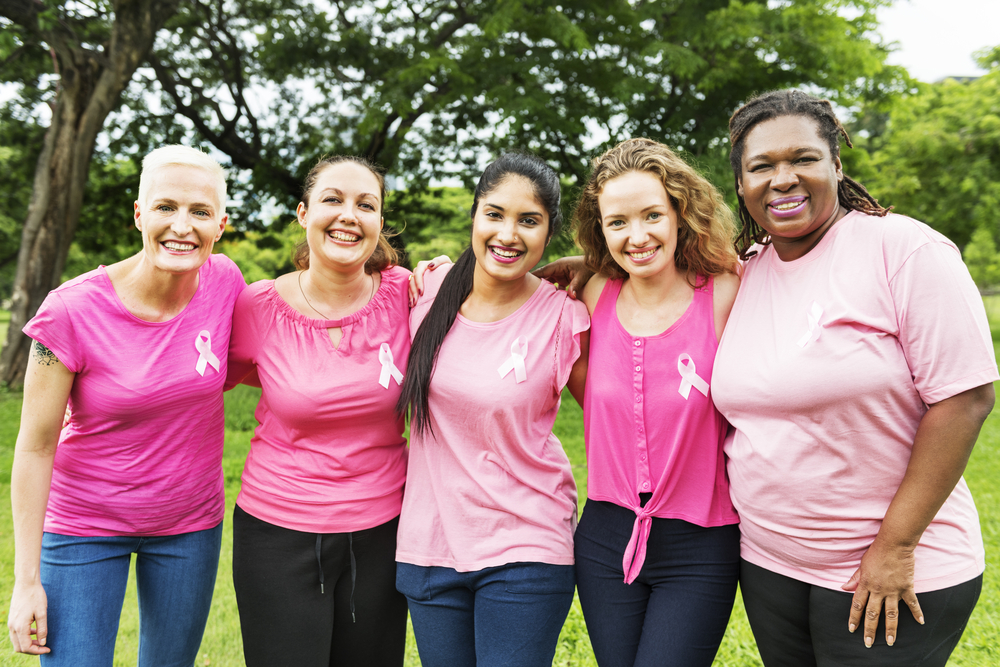Few things are as universal for women as the fear of hearing the words, “You have breast cancer.” I know that the moments, days and weeks after receiving a diagnosis can be terrifying and confusing. You’re probably wondering where to turn and what you should do next. I’ve helped many women deal with the aftermath of this diagnosis, and I can help you too.
Breathe… and Get the Support You Need
First and foremost, keep breathing! Don’t try to go it alone. Find your support system, and ask for help. Also realize that although your life has changed, it certainly hasn’t ended! A diagnosis of breast cancer is not an emergency, and it isn’t a death sentence. You have time to find out as much as you want to about your diagnosis before making any decisions. A woman has time to find out as much as she wants to know about her diagnosis. I tell women it is like going back to school for a class you never wanted to take — it may be tough, but you will pass!
Finding a Breast Cancer Center for you
One of the first things you (or your partner) should do is find the nearest Breast Center — most cities or universities now have one (or several). Make sure it’s more than just an imaging center; it should have multidisciplinary teams of breast surgeons, oncologists and radiation specialists. You can search online for the nearest center at www.breastcare.org. If you are unable to find a breast center, it is important that you have confidence in your surgeon (often the person who first diagnosed you) and that she/he has contacts with medical and radiation oncologists.
Other Breast Cancer Resources
There are several other websites that cover an overview and the basics of breast cancer treatment options. Some of my favorites are:
- www.cancer.gov/cancertopics/types/breast (this is The National Cancer Institute’s site)
All of these sites offer a wealth of information, many diagrams, and search functions. Some of the sites also have subscription newsletters and links to other sites.
Books on the topic of breast cancer also abound, but my favorite still remains one of the first — Dr. Susan Love’s Breast Book. A Breast Center should also have a library of information, pamphlets, brochures, videos and check lists. Another great resources is www.educareinc.com/patient.
Surgery
After diagnosis, a woman is usually first referred to a surgeon. Another website, www.breastsurgeons.org can help you find a surgeon who is right for you. Remember, though, that not all surgeons choose, or can afford the membership fees, to belong to these organizations. If your surgeon isn’t a member, that doesn’t mean she/he is not good. All surgeons, however, should be board certified.
Most general surgeons are trained in performing breast surgery, but there is also a growing number of surgeons choosing to specialize in this area only. Many women prefer to see a specialist, and if you want this type of care, you should be able to locate it; www.womensurgeons.org/CDR/Breast is one good resource.
It’s most important, however, for you to feel comfortable with your surgeon. This means you should get as many opinions as you want before selecting the person who will often be the “captain” of your team.
Taking that Big Step Forward
Once you have your team in place, you should be provided with the “standard of care” for breast cancer, which usually includes surgery, radiation and some type of systemic or total body care.
Surgery options include both lumpectomy and mastectomy; both types can offer the same long term survival rates. Both are usually accompanied by a sentinel node biopsy, which have been standard for nearly fifteen years. There are limited cases in which it can’t be done, and you should definitely know it’s an option, and request it if you see fit. With modern techniques, the surgical experience can be quite positive, rather than a frightening experience.
What’s most important to me is that women feel supported, receive as much information as they want, and understand their options. Women all have unique priorities, which should be taken into account. There are some women who would truly rather die than have their breasts removed; others want their breasts removed even when they don’t have cancer. Most women fall somewhere in between and just need to take time to come to a decision. Wherever a woman falls on this spectrum, it’s her choice, and it should be respected. She should never feel like she was railroaded into a decision that isn’t right for her.
I have heard of too many women who are told they had to have a mastectomy because it’s the best option. It’s simply not always true.
A lumpectomy can be a viable option, but it doesn’t come without challenges. If this is the route you choose, it will be recommended that you have 6 to 7 weeks of radiation treatments. These treatments last about 5 minutes, but you must go five days a week, Monday to Friday.
Radiation is considered standard of care, but is not mandatory. New techniques are being developed to deliver radiation during surgery. Most women have few problems with radiation, but some get very tired toward the end. I’ve found that acupuncture can help with the fatigue. Some women are very sensitive to radiation and need to detox their bodies both during and after. I usually recommend that women use some seaweed or kelp products. The breast skin can get severely burnt and women are encouraged to use aloe, orally or on the skin. Most women’s white cell counts will be depressed for some time after radiation, and I haven’t found a simple antidote for this. Radiation is recommended to decrease the chance of reoccurrence; major studies have found the decrease to be at least 30% risk of reoccurrence. Survival rate does not seem to be impacted by radiation.
Be Knowledgable of Your Treatment
Breast cancer is now considered a systemic (affecting the total body) disease and treated as such. Surgeons once thought that they could cure breast cancer with the knife, but with the exception, perhaps, of very small cancers this theory has been proven wrong. That’s why more and more women are encouraged to see a medical oncologist to have some sort of adjuvant (additional) therapy: usually chemotherapy and/or hormonal therapy. Most of the information about the benefits and risks from these treatments can be found on the websites above.
Unfortunately there is no magic pill to cure or prevent breast cancer YET. Systemic therapies can usually stop the cancer from returning for some years – and for many women, for life. But these treatments don’t work for all women, and there are likely some women getting them unnecessarily. While they might be the best options we have now, stay tuned for ongoing research into vaccines, teleomerases, and tumor profiling.
When facing a diagnosis of breast cancer, you should feel you have been presented with the facts and statistics regarding the benefits and side effects of any treatment. For some women even a 1 to 2% advantage is enough to do everything; for others the thought of chemo-brain is enough to outweigh any benefit. We are all different. Get as many opinions as you want and find a team that will support YOU!







